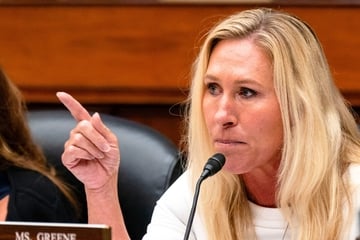Democrats contend with how to scale down Biden’s social safety net to satisfy centrist minority
Washington DC - Congressional Democrats eager to make progress on President Joe Biden’s Build Back Better plan are beginning to confront the harrowing challenge of squeezing their ambitious remodeling of the nation’s social safety net programs into the much smaller package needed to win over key centrists.
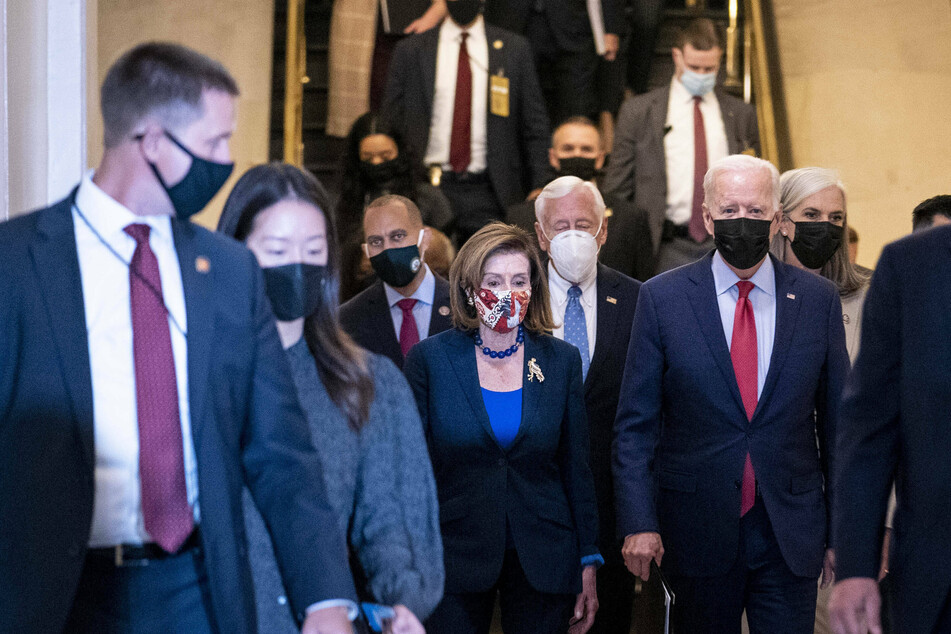
For a second day, Democratic leaders and White House officials gathered on Capitol Hill in hopes of reaching agreement on a framework for the social investment package, which has been expected to establish paid family leave and subsidies for child care, elder care, and community college, as well as fortify existing health programs, among other progressive ambitions.
Biden met behind closed doors with rank-and-file House Democrats on Friday to rally their support. He urged them to find compromise around a $2-trillion price tag for the package, down from the $3.5 trillion Democrats have publicly considered for months.
Speaker Nancy Pelosi was hoping an agreement on a framework would unleash support from a group of progressives who have said they would not vote for the first portion of Biden’s plan, a bipartisan bill to repair the nation’s roads and bridges, until they are assured that conservative Democratic Sens. Joe Manchin of West Virginia and Kyrsten Sinema of Arizona would support the second portion, the social safety net bill that they favor.
Pelosi earlier Friday insisted the House would vote on the infrastructure plan after delaying the vote twice already this week. The speaker aimed to use Thursday night’s expiration of annual highway funding as a pressure point to vote on the infrastructure bill. But in a sign of how far away a broader deal might be, lawmakers are expected to approve a 30-day stopgap highway funding bill.
Biden, too, expressed no urgency for an immediate vote.
"It doesn’t matter whether it is six minutes, six days or six weeks. We’re going to get it done," Biden said as he left the meeting in the Capitol basement.
Finding the least bad option
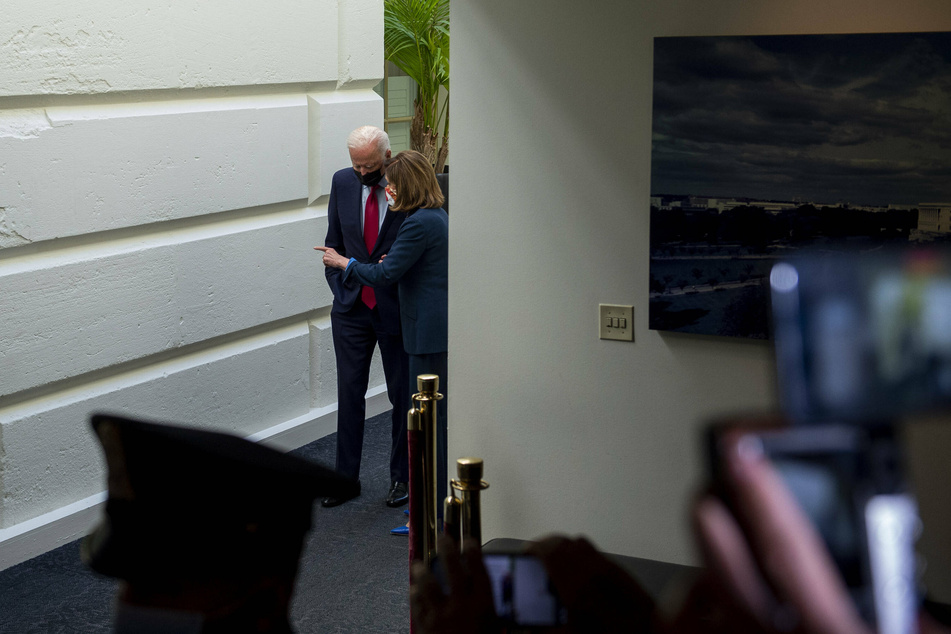
The focus on an approximately $2-trillion plan comes after Manchin said for the first time publicly Thursday that he could support no more than $1.5 trillion, meaning Democrats are all but certain to have to significantly reshape the package. It can't pass the Senate without Manchin and Sinema’s votes.
Democrats are just beginning to contend with the decision of whether to name winners and losers from the original package in order to ensure the remaining programs are fully funded, or slice a bit off each one, weakening them all.
If they choose to slice, they could opt to provide most benefits to only the poorest Americans, a "means-testing" that Manchin strongly supports. Or they could limit the amount of time they’re in effect. That option would create a potential cliff in a few years when the benefits would be due to expire, putting them at risk if Democrats do not maintain control of Congress and the White House. Biden leaned into that political dynamic in the closed-door meeting.
"He’s trying to tell people, think about what programs you need and if we get those in there, if the Republicans ever take over again, let them try to undo it," said Rep. Jimmy Gomez of California.
A third possible track, delaying the start of the benefits to reduce the cost, poses another challenge: Democrats would have no tangibles to talk about at home ahead of the midterm election next year.
But other Democrats argue it would be better to go bold on a smaller number of items. That, however, has the potential to lead to even more squabbles within the party as different factions square off over their priorities.
There are particular concerns about delaying the implementation of programs. When Democrats passed the Affordable Care Act in 2010, they delayed the insurance subsidies for four years in order to save money – because of the complicated way Congress calculates costs – and to allow time for the complex insurance exchanges to be set up.
But the delay left supporters of the law politically vulnerable until the popular benefits rolled out.
Manchin names his price, Sinema remains evasive
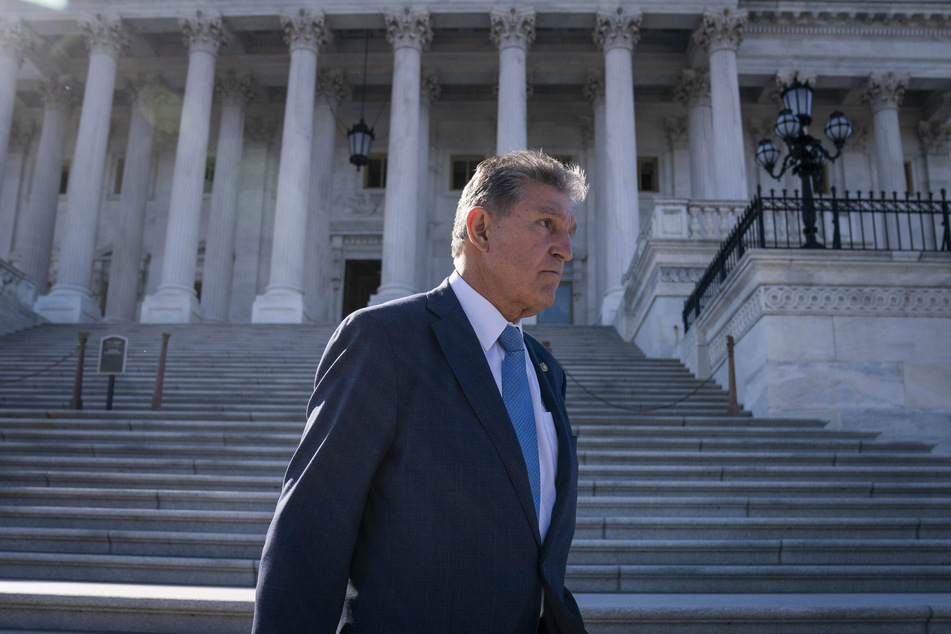
Democrats, at least in the Senate, increasingly believe they will have to meet Manchin and Sinema wherever they land. "I don’t think we have a choice," said one Democrat, granted anonymity to share internal discussions. But that is not a universally held view.
"Every single element of the current proposal, which is not final, is more than justified – from the care economy, climate, immigration reform, and everything in between," said California Sen. Alex Padilla, who considers the $3.5-trillion package a compromise from Sen. Bernie Sanders’ original hope of a $6-trillion plan. "I get that we might have to adjust the number, but every single item in the package is important and it’s urgent."
The expanded child tax credit, rolled out on a temporary basis in the Democrats’ Covid-19 relief bill, has emerged as a widespread favorite. Provisions to help combat climate change are also considered sacrosanct for many, although some of the proposals are expensive.
In a document signed alongside Senate Majority Leader Chuck Schumer on July 28 but only released widely on Thursday when it was published in Politico, Manchin revealed parameters of a deal he would support.
He listed "families and health" programs, such as childcare and Obamacare tax credits, and put parameters around the climate provisions he would support. He wants assurance that fossil fuel subsidies won’t be repealed and that electric vehicle subsidies will be extended to hydrogen-powered vehicles, both of which help his coal-heavy state – and presumably his own coal entanglements.
While Sinema has been far less transparent with her interests, what she has revealed publicly has made clear that she and Manchin have different interests. She has emphasized climate, while Manchin does not. And she has shown concern about inflation and tax hikes.
Political consequences for every cut
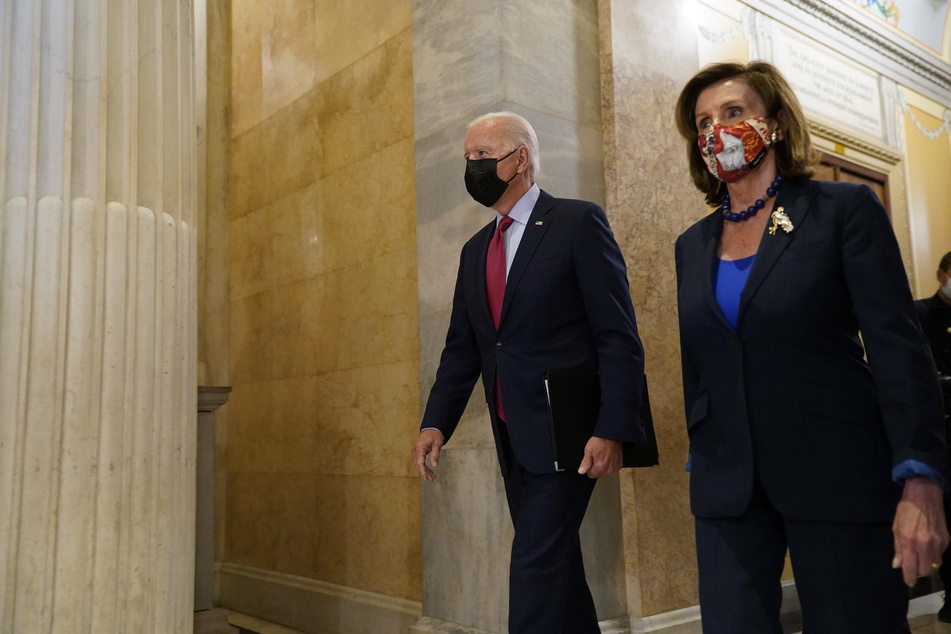
Pelosi has made no secret of the fact that she wants to strengthen the Affordable Care Act’s tax credits, which were also bumped up on a temporary basis in the Covid-19 bill passed in March. The majority whip, Rep. James E. Clyburn of South Carolina, has separately prioritized creating a new program to provide Medicaid to poor people in the states that did not take advantage of the option to expand the program under the ACA.
Both of those are likely to go up against the wishes of progressives led by Sanders to expand Medicare to include vision, dental, and hearing, which are likely to be popular with older people. In contrast, the Medicaid expansion would help the very poor in mostly Republican-led states, and the ACA subsidy boost would help middle-income people throughout the country.
The choice among those health provisions is likely to face additional constraints as Democrats’ hopes to require drugmakers to negotiate their prices in Medicare is likely to be scaled back amid strong opposition from four House Democrats and several senators, all with well-established links to the pharmaceutical industry. The negotiation package would have funded the health expansion programs.
Democrats will look to Biden to help guide those choices and provide political cover from those who will lose out by what is cut. But it’s also clear others will hold Biden, Manchin, and Sinema politically liable for what’s left on the chopping block.
Cover photo: IMAGO / UPI Photo

